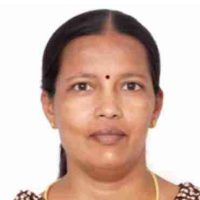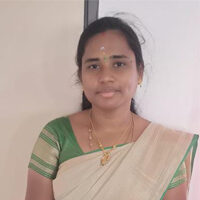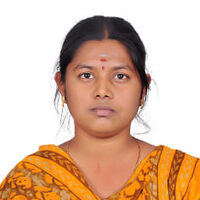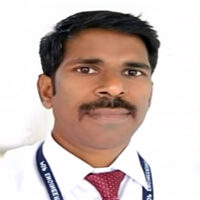
Established in the year 2011, with the approval of AICTE,NewDelhi. The laboratories are highly modernized to reflect the rapidly changing trends in technology. Drawing upon RVCE’s methodology of teaching excellence, the Department of EEE with 7 faculty and 90 students works closely together in an open, collegial atmosphere. The Department places equal emphasis on theoretical and experimental electrical and electronics engineering, with Anna University’s curriculum, organized solar panel awareness program to the Panchayat Leaders in nearby villages.
Laboratories
The department has well–equipped laboratories to cover all the experiments prescribed in Anna University/A.I.C.T.E. Curriculum and to support all research activities.
Electrical Machines and Control Laboratories
It is one of the major laboratories of Electrical and Electronics Engineering department which comprises of Electrical Machines I, II and Control System sessions.
- These laboratories impart the students with practical machine handling techniques that underscore operation, control and determination of machine parameters.
- The Electrical Machines Laboratory is well utilized by all branches of students for lab work and project work.
Electrical Machines Lab:
All types of DC, AC Machines and protective devices like series, motor, single phase, three phase squirrel cage, slip ring induction motors, single-phase and three phase transformers, suitable starters and loading arrangements for machines, measuring instruments of all types needed for the laboratory experiments and also sub-standard meters meant for calibration are available as per curriculum for students practice sessions.
Control System Lab:
This laboratory trains the students with various AC and DC machines available in machines laboratory. The laboratory session also includes software simulation of P, PI, PID controller, bode plots and root locus response needing hands-on experience on theory.
Electronics, Circuits and Instrumentation Laboratories
- It comprises of Electrical Circuits Lab and Measurements & Instrumentation Lab.
- The role of these laboratories is to educate undergraduate students in the concepts and techniques of Electronics Systems and to carry out cutting-edge research in this area.
Power Electronics Lab:
Laboratory experiments in electrical circuits using semiconductor devices, including diodes, MOSFETs and BJTs. Employing a learn-by-doing approach, emphasizing the hands-on-experimental experiences.
Electrical Circuit Lab:
Laboratory experiments is to verify basic electrical laws like Ohms law, Kirchhoff’s Voltage and current, Theorems – Super position, Norton, Thevenin, Frequency spectrum of series and parallel RLC circuit.
Measurement and Instrumentation laboratory:
This laboratory demonstrates the students with Measure Pressure, Resistance, Inductor, Capacitor and Iron loss using kits like Galvanometer and Linear variable Differential Transducer.
Power System Laboratories
- The laboratory comprises of Power Systems Simulation laboratory and Computer centre. This laboratory is one to be found for software simulations lacking hands-on experience on the subject.
- This laboratory is to study and practice the Simulation of PF determination of short, medium and long Transmission, Economic power generation with and without Transmission loss, Transient stability analysis by Equal area criterion and Swing Equation, C++ program to determine Ybus and Zbus matrix, Line to Line, Line to Ground, double line to Ground, three phase short circuit fault analysis, load flow analysis – Gauss Seidel, Newton Raphson and fast decoupled methods using SCILAB Power System tools.
Computer Center
- The following are the features of the computer center present in the department:
- Total Number of Computers: 25
- Printing and Scanning Facilities are provided for the Students with High Speed Internet Connectivity.
- Technical Software available in the Computer lab:
-
- SCILAB
- PSim 9.1
- This Computer Lab is being extensively used by the Project students in addition to the following regular Laboratory course such as Power Systems Simulation Laboratory.
Engineering Practices Laboratory
This laboratory inculcates the basic knowledge of household wiring and calculation of energy, real and reactive power and measurement of earth resistance using advanced devices like live wire detector, range finder, megger, energy meter and all assorted electrical components.
FACULTY ACHIEVEMENTS
| S.No | Name of the Faculty | Title of the paper | Participation / Publication |
|---|---|---|---|
| 1 | Ms.K. Jaseema Banu | An on chip hindrance computation skill for small delay deficiency revealing using signature registers | International Journal of Advanced Information Science and Technology |
| 2 | Ms.K. Jaseema Banu | Responsive End user Based Demand Side Management in Multi Microgrid Environment | National Conference ERFOLG-15 |
| 3 | Ms.K. Jaseema Banu | An On chip latency computation method with area reduction skill for small delay fault revealing | International Journal International Journal of Electronics |
| 4 | Ms.K. Jaseema Banu | An On chip latency computation method with area reduction skill for small delay fault revealing | International Journal International Journal of Electronics |
| 5 | Ms.K. Jaseema Banu | Design of Fault Current Controller Using Solid State Devices and Its Implementation in Thermal Power Systems | National Conference ERFOLG-15 |
FACULTY DEVELOPMENT PROGRAMM
| S.NO | Name of the Faculty | Name of the Event | Participated College and date |
| 1 | Mr. M. Yuvaraj | FDP | Kalasalingam University, 18-12-2014 to 20-12-2014 |
| 2 | Mr. R. Vigneshwaran | FDP | Kalasalingam University, 18-12-2014 to 20-12-2014 |
| Mr. A. Raymon | FDP | Kalasalingam University, 18-12-2014 to 20-12-2014 | |
| 3 | Ms.K. Jaseema Banu | FDP | National Engineering College 08-12-2014 to 14-12-2014 |
| 4 | Mr. R. Rajesh Kanna | FDP | National Engineering College 08-12-2014 to 14-12-2014 |
STUDENTS ACHIEVEMENTS
| S.NO | Name of the Student | Participated College and Date | Name of the Event | Paper Name | Place won |
|---|---|---|---|---|---|
| 1 | G. Deepika | SCAD COLLEGE OF ENGG AND TECHNOLOGY – 18-03-2014 | Symposium-ELEKYUDH-2K14 (Paper Presentation) | Analysis of critical characteristics of mixed insulating fluids | 1st |
| 2 | D. Ramakrishnan | SCAD COLLEGE OF ENGG AND TECHNOLOGY – 18-03-2014 | Symposium-ELEKYUDH-2K14 (Paper Presentation) | Analysis of critical characteristics of mixed insulating fluids | 1st |
| 3 | M. Venkadeshwaran | SCAD COLLEGE OF ENGG AND TECHNOLOGY – 18-03-2014 | Symposium-ELEKYUDH-2K14 (Paper Presentation) | Control of hybrid system using multi input inverter and maximum power point tracking | Participation |
| 4 | M. Pandi Durai | SCAD COLLEGE OF ENGG AND TECHNOLOGY – 22 & 23-02-2014 | Symposium-ELEKYUDH-2K14 (Paper Presentation) | Control of hybrid system using multi input inverter and maximum power point tracking | Participation |
| 5 | A. Senthil Kumar | Mother Therasa College of Engg and Technology, Pudhukottai – 18-03-2014 | National Conference – RAT 2014 | Analysis of critical characteristics of mixed insulating fluids | Participation |
| 6 | D. Ramakrishnan | Mother Therasa College of Engg and Technology, Pudhukottai – 18-03-2014 | National Conference – RAT 2014 | Analysis of critical characteristics of mixed insulating fluids | Participation |
| 7 | G. Deepika | Mother Therasa College of Engg and Technology, Pudhukottai – 18-03-2014 | National Conference – RAT 2014 | Analysis of critical characteristics of mixed insulating fluids | Participation |
| 8 | A. Senthil Kumar | Kottaiyam, Kerela – 24 to 26 -07-2014 | AICERA2014 IEEE International Conference | Analysis of critical characteristics of mixed insulating fluids | Participation |
| 9 | G. Lakshmanan | Kottaiyam, Kerela – 24 to 26 -07-2014 | AICERA2014 IEEE International Conference | Analysis of critical characteristics of mixed insulating fluids | Participation |




